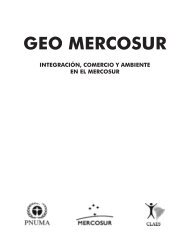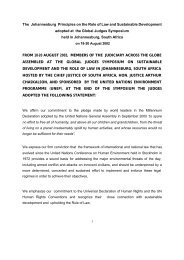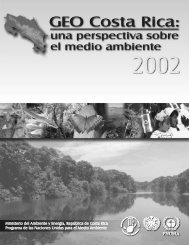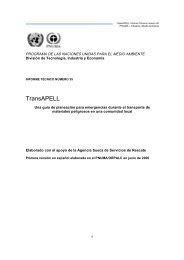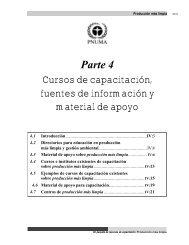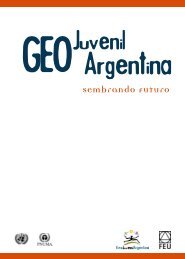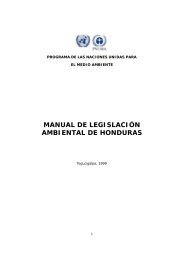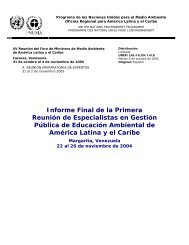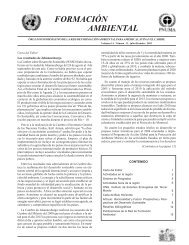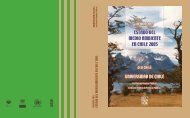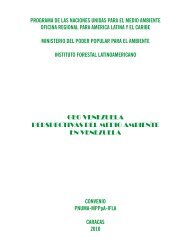English
English
English
You also want an ePaper? Increase the reach of your titles
YUMPU automatically turns print PDFs into web optimized ePapers that Google loves.
Did you know?<br />
Transboundary movement of hazardous substances<br />
Reports to the Basel Convention suggest that there are at least 8.5<br />
million tonnes of hazardous waste moving from country to country each<br />
year.<br />
Of these millions of tonnes of hazardous wastes sent for disposal<br />
abroad, much is received as a welcomed source of business. However,<br />
many countries do complain that they are receiving shipments which<br />
they never agreed to and which they are unable to deal with properly.<br />
Source: Based on national reports transmitted to the Secretariat of the Basel<br />
Convention in 2001<br />
The Basel Convention also has 14 Basel Convention Regional and Coordinating<br />
Centres in the following locations: Argentina, China, Egypt, El Salvador, Indonesia,<br />
the Islamic Republic of Iran, Nigeria, the Russian Federation, Senegal, the Slovak<br />
Republic, the South Pacific Regional Environment Programme (Samoa), South<br />
Africa, Trinidad and Tobago and Uruguay. The Centres develop and undertake<br />
regional projects, and deliver training and technology transfer for the<br />
implementation of the Convention.<br />
What still needs to be done…<br />
On 19 August 2006, a ship (the Probo Koala) chartered by a Dutch company<br />
offloaded 400 tons of gasoline, water and caustic washings used to clean oil drums.<br />
The cargo was dumped at Akouedo and at least 10 other sites around the city,<br />
including in a channel leading to a lake, roadsides and open grounds. Six people<br />
died and close to 9,000 others sought treatment since the toxic wastes were<br />
dumped on open-air sites around Abidjan. 39<br />
Why did it happen? Could have been avoided? Actually, since 1995 the Parties<br />
approved the Basel Ban Amendment, which would prohibit globally the export of<br />
hazardous waste from rich to poorer countries, whatever the reason. The rationale<br />
behind the ban was that there is the high risk that hazardous wastes will not be<br />
safely managed in developing countries, and that risk should simply not be taken.<br />
It also reflected the "polluter pays principle," according to which whoever causes<br />
pollution should assume its costs.<br />
Unfortunately, the Ban Amendment has not yet entered into force. It first<br />
needs to be ratified by at least three-fourths of the Parties who accepted it. Thus<br />
far, as of mid-2007, there have been only 63 ratifications.<br />
Ironically, many of the countries that are currently having their workers and<br />
environmental health severely impacted by hazardous waste have failed so far to<br />
ratify it. These countries include India, Pakistan, Bangladesh, the Philippines, and<br />
Cote d’Ivoire (Ivory Coast). Meanwhile, some countries like the United States,<br />
Canada, Australia, New Zealand and South Korea have openly opposed the global<br />
ban. Worst of all, the US, the nation that produces the most hazardous waste per<br />
capita, has failed to ratify the original Basel Convention.<br />
39 Based on “MAC and Communities: ToxiCities” (2006)<br />
http://www.minesandcommunities.org/article.php?a=1798 (last accessed 14 April 2008)<br />
123



